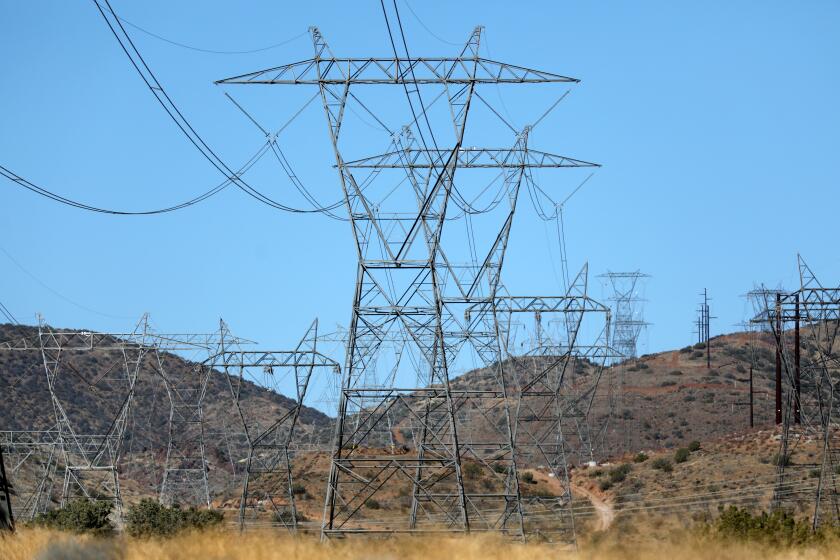‘Yellow Peril’ Fever Strikes Again
In the current campaign finance scandals, the idea that there is something shocking and surprising about foreign governments or special interests attempting to influence political outcomes abroad is disingenuous to say the least.
They do it here all the time, and we do it, too, covertly and overtly. But are we outraged when groups like the America Israel Public Affairs Committee aggressively advocate pro-Israeli positions, regularly fund-raising at dinners attended by Israeli leaders? Have we noticed the millions Taiwan is spending every year to sway U.S. opinion? Are we offended when European leaders exhort Americans of European descent to promote their position on NATO expansion or other issues? Don’t we just take for granted the highly funded, very visible lobbying efforts of foreign business groups like auto makers? Why do we think foreign governments have embassies in Washington? Ad campaigns in our publications? Parties for legislators and lobbyists?
Would it be a bad thing if John Huang had compromised his security clearance or broken campaign finance laws? You bet. If he did, he should go to jail. Would it be a blow to U.S.-China relations if we could prove that Beijing was trying to sway the U.S. electorate? Well, it didn’t help us much with the Chileans when we helped toss out Allende.
But there is a greater threat than the pernicious influence of the unquestioning, shock-obsessed yellow journalism and self-righteous accusations of senators. It is the underlying fears on which they are playing. Something very dangerous has happened in America. Indeed, a shift in American outlook has taken place that is of historic implications.
It is fair to speculate that this particular set of campaign finance scandals has won greater prominence than the string of such scandals that have come before it because the protagonists have Asian names.
Matters are made worse still by the fact that the government in question is China, the country that has brought together the extreme right and the extreme left in a chorus of high-pitched scaremongering.
The root of all this is not simply racism, although that certainly is part of it.
Rather, the real issue is the deep shift in American perceptions about the world, our place in it and the threats to our nation. When this country was settled, the threat was within, from nature and the natives who fought to retain the lands we were seizing from them. During the first 100 years of our nation, the threats were from England and factions within our still fragile union. In the early decades of this century, the primary threats were from conflict in Europe. But during World War II, stunned by the attack from Japan, we began a shift in the focus of our concerns.
Despite all the Cold War rhetoric and real fear, we never faced the Soviet Union in battle. However, during the last half-century, we have fought wars in or against troops from Japan, Korea, China, Vietnam, Cambodia and Laos.
To what degree do our actions derive from a fear of the rise of Asia? To what degree do they derive from cultural and ideological gaps? To what degree are our views given license by racism?
Consider our rhetoric. The Europeans regularly infuriate us on trade issues, but our trade wars have been with Japan. The Russians have been training ICBMs at us for four decades, but when they say they want a break, we give it to them, looking the other way when they machine-gun refugees from Grozny or sell weapons of mass destruction, even as we lambaste the Chinese for similar or lesser offenses. We are outraged by human rights abuses in Asia, but ignore similar violations in Latin America or the Middle East.
The second half of the 20th century can be seen to mark a shift in U.S. foreign policy toward a fundamental, ongoing confrontation between the world’s dominant power, the U.S., and the rising powers of Asia.
The escalation of tension between the U.S. and China is an ominous sign of the state of this relationship. The manufactured hysteria over China in the campaign finance hearings is another. The coming conflicts over growing trade imbalances will be another. Residual tension over issues like human rights and nonproliferation will exacerbate the problem.
These are easy enemies. They look different. Their lives and values are hard to understand. So, in the next few months or years when China’s neuralgic relationship with Taiwan reaches the crisis point, or some other flash point flares, it will be relatively easy to imagine the exhortations to get involved. Unfortunately, the other lesson of this era of conflict with Asia is that the costs of involvement are high and only a total commitment to win at any cost can succeed.
Thus, it behooves us to ask whether our historical tilt against Asia is in our interest, or whether we must work to eliminate the sources of such conflict, instead recognizing the positive implications of the fact that we too are a Pacific nation?
More to Read
Get the L.A. Times Politics newsletter
Deeply reported insights into legislation, politics and policy from Sacramento, Washington and beyond. In your inbox three times per week.
You may occasionally receive promotional content from the Los Angeles Times.






